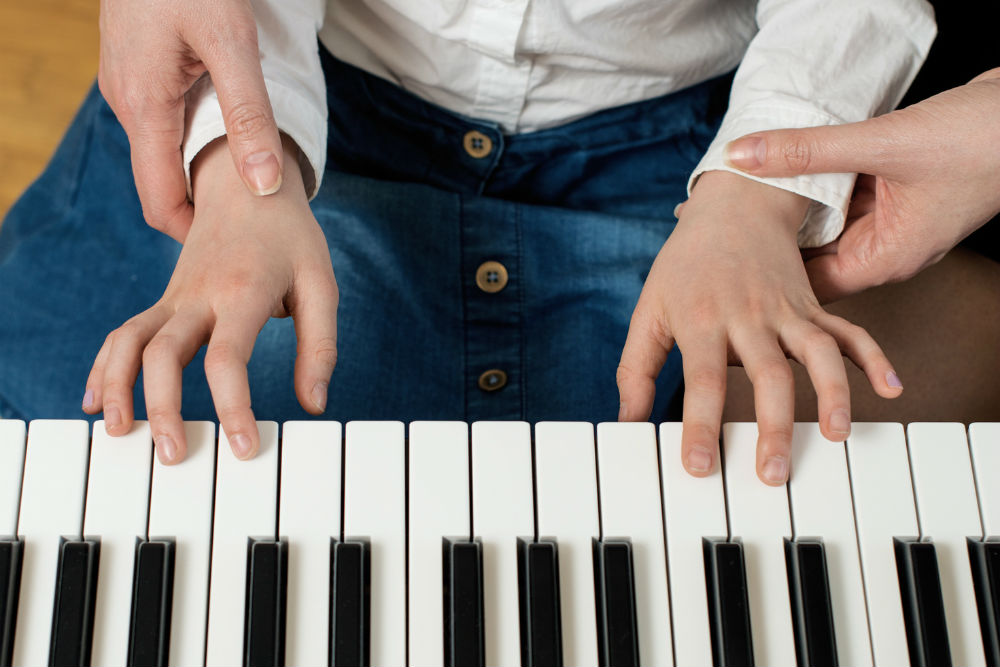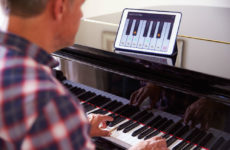
Individuals who play piano- whether beginner or advanced- are always aspiring to be better when they are playing. After all, everyone really does tend to be ambitious, but will often become disappointed and lose their motivation once they find that their progress is moving slowly.
Following are a few methods for becoming a better piano player and some tips that you can use when you are practicing.
Schedule Time to Practice
When you’re learning to play piano, it’s critical that you take the time to practice. It’s a good idea to spend about an hour in practice every day. Of course, if you don’t really have that much time, you definitely need to get a good 30 minutes of practice in every single day.
Do Some Extra Practice
If you do have the time, it’s a good idea to do some extra practice. For example, for many people, weekends are not as jam-packed with activities, so try spending 2-3 hours practicing, more if you can.
This is a good idea because it breaks the routine of playing the piano and allows you to get in more practice and perfect the pieces you are playing.
Listen to the Song/Piece You are Playing
If you are taking lessons and preparing to play a new piece, you may consider searching the internet for videos/songs to hear how it sounds. This can be beneficial because it gives you an idea of how a song is played and helps you to recognize the “emotion” that is being emanated by the song/piece.
Dynamics are not Rules that Can’t be Broken
When you’re looking at the dynamics of a song, try to avoid looking at them as “rules” that you can’t break. For example, you may have a song that begins with mp, or mezzo-piano, which means moderately soft.
There is really no specific volume level associated with these dynamics. When you’re practicing, you don’t have to necessarily play accordingly and then have trouble being able to hear it.
The only time you must play as directed is when you’re performing and trying to play properly.
Practice Sight Reading- Don’t Stress Over Mistakes
When you’re learning to play piano, you want to practice sight reading. You want to avoid stressing out over mistakes. This is a helpful tip because it’s basically like you’re scanning a paragraph and looking at a picture.
This will give you an understanding of what the particular passage is trying to tell you before you read it and gives you an idea of what comes next. It’s the same with music and can help you to avoid making mistakes.
Pay Attention to Mistakes
Of course, you shouldn’t let your mistakes stress you out and make you walk away from piano playing. However, you should pay attention to the mistakes you make and keep them in mind to avoid making the next time around.
Don’t Forget to Count
Every piece of music you play is going to have a time signature at the beginning of the staff. If you have a time signature of ¾, then you need to count the notes in the bar as you play them.
This is beneficial because it helps you to determine how slowly/quickly a note needs to be played. However, once you have played the piece well, it may not be necessary to count.
Play in Front of Others
Performing in front of others can be quite challenging, especially at first because some people are shy and have no confidence. However, this will improve your ability to play and you will be much more confident about playing next time.
Ask Someone to Play for You
When you are practicing a piece, it may be helpful to ask your instructor or a more advanced player to play it for you. This way, you can gain a better understanding of how the piece should sound- which improves your playing ability.
Concentrate on Playing Properly
Most of the time, piano players believe they are great when playing alone- but they are not nearly as good when they are playing for others. However, if you can maintain a comfy tempo, you can concentrate on avoiding mistakes.
You should never play too fast/too slow just to impress others. Once you have gotten comfy with a piece at a particular tempo, you can slow it down or speed it up according to the piece itself.


